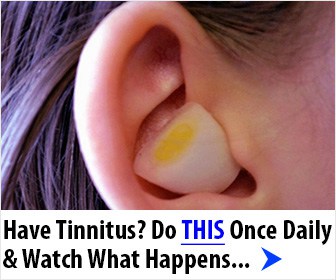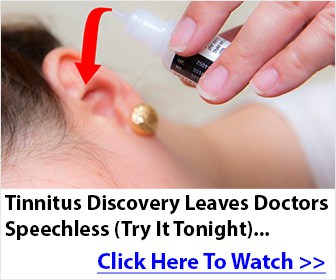Many tinnitus sufferers wonder what foods to avoid if they have tinnitus. Help relieve the ringing in your ears by following this handy guide on which foods trigger tinnitus and which foods you should avoid.
Did you know that certain foods can trigger tinnitus and might even be making your tinnitus worse?
Doctors and scientists all over the world have dedicated years of research to understanding what tinnitus is, if there is a way to make tinnitus go away and which foods you should avoid if you suffer from tinnitus.1
You might have noticed that certain foods cause your tinnitus to get worse. If that’s the case, you’re not alone. There are plenty of stories of people who have found that their diet can make tinnitus worse.
In fact, in 2022 scientists surveyed over 5,000 tinnitus sufferers to see which foods were most likely to trigger ringing in the ears for tinnitus patients.2
This list of seven foods to avoid if you have tinnitus is backed by scientific research and will explain why eating could trigger your tinnitus.3
So, before you do anything else, take stock of your pantry, your grocery list and your favorite takeout options.
Cutting back on a few of these foods might help improve your tinnitus and the ringing in your ears.
1. Sugary Sweets

As far back as the early 1990s, tinnitus patients told researchers that eating desserts and sugary food made their tinnitus worse.4
Your brain relies on sugar to work properly. But the amount of sugar we need is a lot less than most of us eat every day.5
When you have too much sugar it changes your brain function, throwing it off-balance. This can make your brain activity more sporadic. And when that happens, it can be harder for your nervous system to regulate itself.
This can cause your tinnitus to act up while your brain struggles to get back into a stable rhythm and helps explain the potential link between sugar and tinnitus.
Most restaurant, takeout and processed food contain a lot more sugar than you’d expect.
Simple steps like eating more homemade meals, having fresh whole fruit instead of juice or other fruit products, and making sure your dessert portions are a healthy size can all help you avoid the ringing in your ears after eating sugar.
If you’re not sure what the right amount of sugar is, or if you’d like to learn some simple ways to switch out the worst offenders to keep you healthy while reducing that buzzing in your ears, check out this list of sugary food alternatives.
2. Salty Food

Salt has been heavily researched by medical professionals, and many of us have heard how salt contributes to higher blood pressure and other negative health conditions.6,7
What most people don’t know is this: Salt can make tinnitus worse.8
So why does salt intake affect tinnitus?
The reason why salt can make tinnitus worse is that when salt from food raises your blood pressure, blood flows at a faster pace throughout your body, increasing the blood flow to your ears.9
When more blood gets to your ears, there’s a lot more activity there, leading to an increase in the ringing in your ears which is how salt affects tinnitus.10
There’s no evidence that salt can cause tinnitus. But if you’re already suffering from ringing in your ears, keeping an eye on how much salt you’re eating might help ease some of your symptoms.
Salt is such a big problem for tinnitus, that we wrote a whole article on easy ways to cut down the salt in your diet.
Give a few of those ideas a try and see if they help improve your tinnitus.
3. Alcoholic Beverages

Studies have shown that as many as 84% of tinnitus sufferers reported drinking alcohol makes their tinnitus worse.11
There are a few ways that alcohol affects your tinnitus.4
Basically, when you introduce alcohol to your system, it acts like a poison. It alters many systems in your body, travels through your bloodstream, and can cause many problems, such as these:
- Similar to salt, alcohol affects blood pressure leading to more tinnitus issues
- It is metabolized as sugar, leading to the same tinnitus issue as eating sugar directly
- It restricts blood vessels, which is a big problem for tinnitus
- As a diuretic, it dehydrates you, which aggravates the ringing in your ears
All of that adds up to a disaster for anyone suffering from tinnitus.2
Excessive alcohol consumption seems to be the key factor here. Most tinnitus patients say that having a drink or two doesn’t worsen their symptoms, but going overboard is where things really get worse.12
Drinking a moderate amount is the best way to go to try to alleviate the constant buzzing in your ears.
4. Coffee or Caffeine-filled Beverages

Researchers have found that caffeine can make tinnitus worse and sometimes caffeine can cause tinnitus.2
Some patients who have completely cut out, or at least drastically reduced the amount of coffee and caffeine they consume, have been able to eliminate their tinnitus.13
This doesn’t mean that everyone with tinnitus shouldn’t have any caffeine. But since caffeine found in coffee and tea can cause ringing in the ears and might make it worse, going on a 2-week trial to see if cutting it down will help you is worth a shot.8,14
We’ve put together a list of easy ways to cut down caffeine intake as well as a helpful guide for some healthy alternatives to coffee.
Even if your tinnitus isn’t 100% improved with the lower coffee intake, as a side effect it might help your sleep quality, which can be a big issue with tinnitus.14
If you’re having trouble sleeping, we have some sleep tips specifically for tinnitus sufferers like you.
5. Food High in Saturated Fat

Butter, red meat, and cheese. These foods have a couple of things in common. First, they are delicious. And second, they are all high in saturated fat.
When you eat foods high in saturated fat, it raises your cholesterol and can lead to something called atherosclerosis. This adds it to the list of foods to avoid with tinnitus.15
Many doctors have linked atherosclerosis to tinnitus, and it can become much more severe if you eat fatty foods. This shows how strong the link between diet and tinnitus can be.16
It can also lead to many more problems, including heart disease and high blood pressure.17
If you want to stay healthy while also keeping the ringing in your ears to a minimum, try reducing your saturated fat intake.
6. Food with MSG (Monosodium Glutamate)

Many tinnitus sufferers don’t know that MSG (monosodium glutamate) has been shown to trigger, increase and can even be the cause of tinnitus.
Research has shown that people with tinnitus have high levels of glutamate which leads to hyperexcitability in their auditory cortex.18
When MSG is eaten, it breaks down in the digestive tract. When that happens, the glutamate breaks off and acts as a neurotransmitter. This neurotransmitter attacks the ears and spikes the nervous system, causing tinnitus.19
It does this by overly stimulating the nerves and killing them in the process, causing them to act rapidly and sporadically.
MSG is often found in sauces, dressings, seasonings and prepackaged foods. Read food labels carefully to see if MSG has been added to something before eating it.
Manufacturers call MSG by various names on labels. Any time you see “glutamate” in the ingredient list, do a quick online search to see if it is a clever way they are hiding MSG in their product.
7. Aspartame in Diet Food

The diet industry has taken over America. Over the years, many of us have switched to so-called “diet” drinks. Most diet sodas use aspartame as their sweetener to replace the sugar, which means the label can now have a lower calorie count.
Drinks like diet coke can be especially bad for tinnitus since it has both caffeine and aspartame.
Like MSG, aspartame has been known to worsen tinnitus. Aspartame also stimulates dysfunctional neurotransmissions which affect the very sensitive nerves in our ears.20
Avoiding aspartame as much as possible might be the ticket to reducing a lot of the ringing in your ears.
Conclusion
Cutting back on any of our favorite foods can seem overwhelming and downright impossible. However, it’s not all doom and gloom.
Because there are so many different types of tinnitus and causes of tinnitus, there are many different things that might be causing you to suffer from the buzzing in your ears.
Other proven tinnitus relief methods are to make sure your medications aren’t making your tinnitus worse, starting an easy exercise routine and see if smoking or vaping might be affecting the ringing in your ears. You can also explore ways to reduce your tinnitus stress and anxiety.
Take it one step at a time. Choose one of the foods listed above to cut out for a week or two to see if it has any effect on you. When you do find the things that worsen your tinnitus, it’s easier to choose to keep that food to a minimum.
Until a cure for tinnitus is found, the relief you will feel by cutting back on certain foods will be worth the sacrifice!








